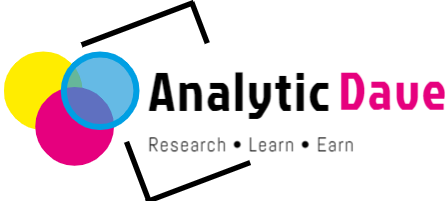Living in Vancouver, Washington: What You Need to Know
Living in Vancouver, Washington: What You Need to Know
Located on the north bank of the Columbia River, just across from Portland, Oregon, Vancouver is a vibrant city with a population of over 196,000, making it Washington’s fourth-largest city. Known for its blend of suburban charm, urban access, and stunning natural surroundings, Vancouver offers a compelling lifestyle for families, professionals, and retirees. Whether you’re exploring Vancouver WA real estate, quality schools, or community hotspots, this guide provides everything you need to know about life in Vancouver.
Why Choose Vancouver, Washington?
Vancouver’s appeal lies in its affordability relative to nearby Portland and Seattle, paired with its proximity to big-city amenities. Situated along Interstate 5 and near I-205, it’s a commuter’s dream, with Portland International Airport just 10 miles away. The climate is mild, with summer highs around 75°F and winter lows near 40°F, though its 38 inches of annual rainfall keeps the region green. The cost of living in Vancouver is 14% above the national average but 11% below Washington’s state average, with median home prices ranging from $475,000 to $550,000. Washington’s lack of state income tax adds financial incentive.
The local economy thrives on healthcare, education, tech, and logistics, with major employers like PeaceHealth Southwest Medical Center, Vancouver School District, and Amazon. Curious about living in Vancouver, WA? Here’s your detailed breakdown.
Neighborhoods in Vancouver, WA: Where to Live
Vancouver’s neighborhoods offer diverse options, from historic charm to modern developments. Here are top areas for those considering moving to Vancouver:
- Esther Short: Downtown’s historic heart, with condos and homes ($400,000–$600,000) near Esther Short Park and the Farmers Market.
- Salmon Creek: A suburban favorite with homes averaging $450,000–$650,000, close to Klineline Pond and top schools.
- Felida: An upscale, family-friendly area with homes ($500,000–$800,000) and a quiet, wooded feel.
- Hough: A trendy, urban spot with homes ($350,000–$550,000) near dining and nightlife.
- Cascade Park: A growing community with homes ($400,000–$600,000) near shopping and parks.
For current listings, visit Matin Real Estate or Redfin Vancouver.
Schools and Education in Vancouver, WA
Education is a priority for families living in Vancouver, Washington. The city is served by two strong districts: Vancouver Public Schools and Evergreen Public Schools, together educating over 45,000 students. Standout schools include:
- Skyview High School: Known for STEM and a 90% graduation rate (Evergreen).
- Vancouver School of Arts and Academics: A magnet school for creative students.
- Henrietta Lacks Health and Bioscience High School: Focuses on science and healthcare careers.
Higher education options include Washington State University Vancouver and Clark College, both offering diverse programs. Explore more at Vancouver Public Schools or Evergreen Public Schools.
Amenities and Community Facilities
Vancouver blends urban convenience with natural beauty, enhancing the Vancouver WA lifestyle. Key amenities include:
- Esther Short Park: A 5-acre downtown gem with concerts and playgrounds. Learn more at Esther Short Park.
- Vancouver Waterfront: A revitalized area with dining, shops, and river views.
- Fort Vancouver National Historic Site: A glimpse into pioneer history.
- Vancouver Mall: A shopping hub with 140+ stores and dining options.
Healthcare is exceptional, with PeaceHealth Southwest Medical Center and Legacy Salmon Creek Medical Center offering top-tier services.
Outdoor Recreation and Important Areas
Vancouver’s location near the Columbia River and Cascade Range makes it an outdoor paradise. Highlights include:
- Klineline Pond: A popular spot for fishing, swimming, and picnics in Salmon Creek.
- Columbia River Gorge: A short drive for hiking, waterfalls, and stunning views.
- Ridgefield National Wildlife Refuge: 5,300 acres for birdwatching and trails.
- Burnt Bridge Creek Trail: An 8-mile path for biking and walking.
Annual events like the Vancouver Wine & Jazz Festival and Clark County Fair showcase the city’s vibrant community spirit.
Cost of Living and Job Market
The cost of living in Vancouver, WA reflects its desirability, with housing as the biggest expense. Rent for a one-bedroom apartment averages $1,500–$2,000 monthly, while utilities and groceries align with national norms. The median household income of $67,000 supports a solid employment in Vancouver, driven by healthcare (PeaceHealth), education (WSU Vancouver), and logistics (Port of Vancouver). The unemployment rate of 4.5% indicates a stable job market.
Community and Culture
Vancouver’s diversity—60% Caucasian, 13% Hispanic, 6% Asian—creates a welcoming, dynamic vibe. The Pearson Air Museum celebrates aviation history, while coffee shops like River Maiden Artisan Coffee and breweries like Heathen Brewing anchor the food scene. The city’s proximity to Portland adds cultural depth, with easy access to art galleries and nightlife.
Final Thoughts on Living in Vancouver, Washington
Living in Vancouver, WA offers an affordable, nature-rich alternative to Portland, with strong schools, job prospects, and a laid-back vibe. From its Vancouver WA schools to iconic spots like the Waterfront, the city appeals to a wide range of residents. Yes, the rain is frequent, but the lush scenery and lower costs make it worthwhile. For more, visit the City of Vancouver website or explore local real estate to find your perfect home.






